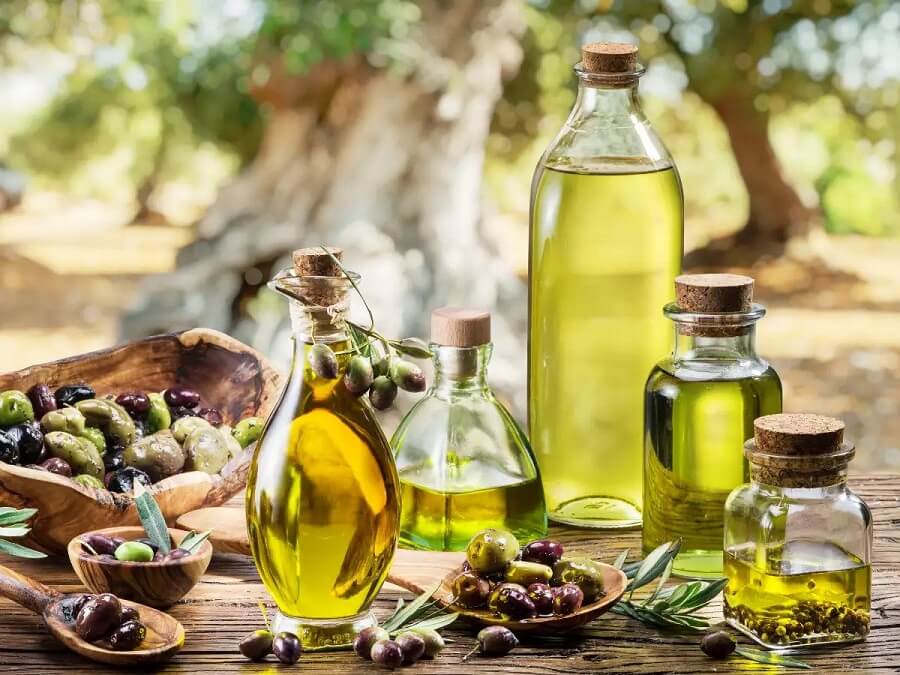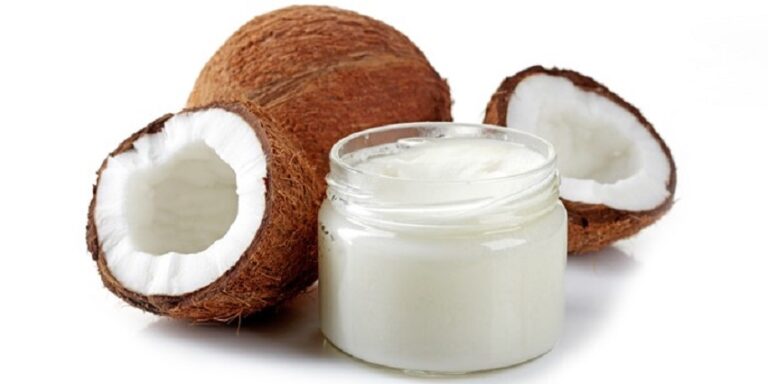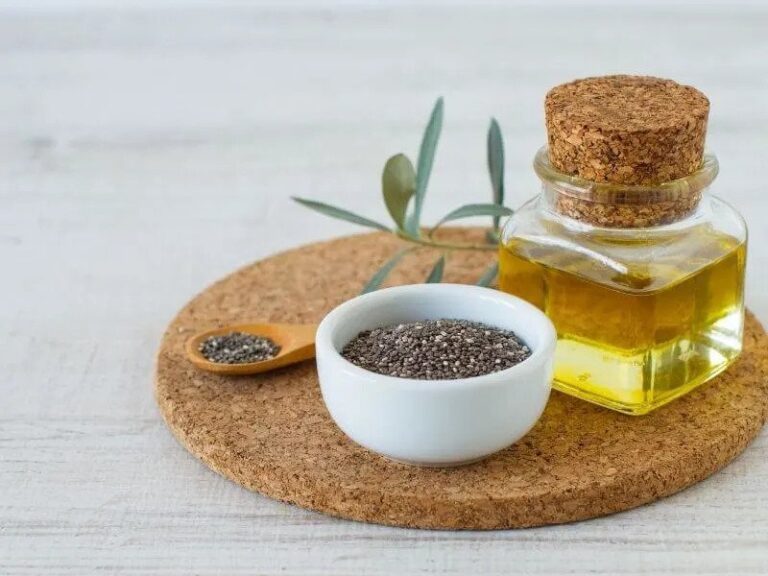Olive oil is a vegetable oil that is obtained by pressing the fruit of the olive tree. Traditionally, olive oil has been used not only for cooking, but also for medicinal purposes, including making soap.
In recent years, the properties of olive oil have been precisely determined, which has led us to answer certain questions.
What are the benefits of olive oil for the body and why is it better than sunflower? Can olive oil be used for frying?
Olive oil – What is it?
Olive oil is a vegetable oil obtained from the extraction and processing of seeds from the fruits of the Olea europaea plant . It is native to the Middle East and was first introduced to Europe in Andalusia in the 7th century thanks to the Phoenicians. (2)
In its beginnings, olive oil was made from tools similar to large stone mortars. Today more advanced methods have been developed.
Due to its nutritional properties and its exquisite flavor, the main use of olive oil is for culinary purposes. However, studies have also confirmed benefits for the skin as well as potential uses as an anti-inflammatory agent, it could even help prevent certain types of neurodegenerative diseases. (5,6,7)
Types of olive oils
According to its quality, at least 4 types of olive oil can be distinguished:
1. Virgin – It is obtained from mechanical processes of the fruit. Chemical processes and therefore the nutritional properties of the fruit are not allowed.
2. Extra virgin – This type is also obtained from mechanical processes. To be extra, its acidity percentage must not exceed 0.8% expressed in g oleic acid. These types are the ones with the best flavor, which is why they are considered to be of the best gastronomic quality.
3. Lampante – This one of the types with higher acidity, allows up to 2% oleic acid and has a characteristic strong flavor.
4. Refined – It is obtained through industrial processes. To be classified as this type, the degree of acidity must not exceed 0.3 g of oleic acid per 100 g.
Properties, benefits and uses
Some benefits of olive oil are attributed to the presence of oleic acid. This molecule is considered capable of preventing cardiovascular diseases, repairing the skin, and has potential properties as a treatment for some types of infections. (1)
In addition, the healthy monounsaturated fats in olive oil make this product one of the best oil options in nutritional terms. However, it is true that when the oil is used for frying it can lose some of its properties.
The nutritional properties and benefits of using olive oil are:
1. High in vitamin E content
Olive oil is one of the highest oils in vitamin E content, this is up to 2% of its total weight. Compared with other oils such as sunflower, olive has a content of up to almost double of this essential micronutrient. (4)
2. Increase good cholesterol (HDL)
Olive oil is a food high in healthy fats . There are several studies that have confirmed that one of the benefits of including this food every day is to increase good cholesterol and therefore improve total cholesterol levels. As for lowering bad cholesterol , studies are not yet conclusive. (3,4)
3. Low glycemic index
Like any other oil, olive oil has a low glycemic index . For this reason, this food is allowed for people with carbohydrate metabolism disorders such as type 2 diabetes.
4. Improve skin health
One of the properties of olive oil is to improve the health of the skin. Oleic acid is able to reduce the inflammation typical of infections, eczema and other skin disorders. (1)
5. Hormonal balance
Monounsaturated fatty acids are essential for the synthesis of sex hormones such as testosterone and estrogens . Including olive oil in meals is a way to stimulate the natural production of these hormones. (5)
6. Memory and cognitive functions
Although there are still studies to confirm the benefits of olive oil on the nervous system. Some studies suggest that it might improve cognitive functions and prevent Alzheimer’s in the long term. (5.6)
7. As an anti-inflammatory
Oleocanthal, a molecule with unique properties of olive oil, can not only act as a neuroprotector, but also as an anti-inflammatory. In fact, studies suggest that extracts of this molecule can be used as a treatment for inflammation-related diseases of the body. (6)
Can it be fried in olive oil?
Olive oil can be used both for frying and added raw. The main problem with frying is the significant loss of some nutritional properties such as vitamin E. By frying and bringing the oil to high temperatures (> 180 ° C), up to 50% of the vitamin E can be destroyed in a matter of 30 minutes.
The vitamin E withstands temperatures up to about 170 ° C. In addition, it can be slowly degraded by the action of the sun and air. Some oils like olive oil can lose up to 20-30% of their vitamin E content in a few weeks. (7)
To obtain the benefits of olive oil, it must be stored in a cool, dry place in dark glass containers protected against UV rays.
Contraindications and possible side effects
Olive oil is considered a safe food and to date there is no research that has detected strong drug interactions. However, too much food can cause stomach side effects.
The side effects of eating olive oil in excess are:
- Abdominal pain
- Diarrhea
- Sickness
- Vomiting
- Allergies
Olive oil and Mediterranean diet
Olive oil is one of the main ingredients of the Mediterranean diet . This diet is one of the best in terms of nutritional properties, in addition to its long-term health benefits.
Some of the benefits of the Mediterranean diet are directly related to the use of olive oil. For example, research from more than 10 European countries found an association between a reduction in obesity rates and people who followed this diet. (8)
In addition to the use of olive oil in many of its meals, the Mediterranean diet allows the use of spices, wine and a sweet dessert sporadically.
ABSTRACT
Olive oil is a vegetable oil used for gastronomic purposes for more than 6000 years. At least four types are distinguished: virgin, extra virgin, lampante and refined.
Its traditional uses are as an ingredient for the preparation of a wide variety of dishes and it is a basic ingredient in the Mediterranean diet.
Recent studies have confirmed medicinal properties of some of its compounds such as oleocanthal. A potential raw material for treatments of neurodegenerative diseases such as Alzheimer’s.
To obtain the benefits of olive oil and avoid the loss of vitamin E, it is recommended not to fry it, store it in dry, dark containers protected from light.







